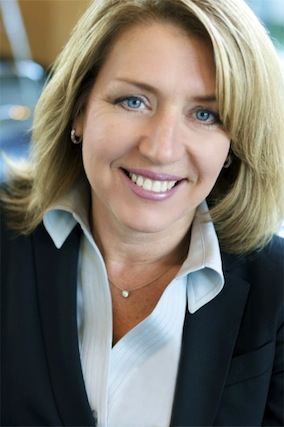Liz Wiseman
Liz Wiseman is a business executive serving as president of The Wiseman Group, a research and development center. She is a member of The Church of Jesus Christ of Latter-day Saints.
Wiseman earned her bachelor’s degree in business management and master’s degree in organizational behavior, both from Brigham Young University. After graduation, she joined Oracle, thinking she would move on after a year or two. She liked the environment and stayed for seventeen years, ultimately becoming the vice president of Oracle University—an internal training group—and global leader for Human Resource Development.
At The Wiseman Group, she advises senior executives and leads strategy and leadership forums for executive teams worldwide. She conducts research in the fields of leadership and learning and writes for Harvard Business Review and a variety of business and educational journals. She works at home with her husband, Larry; his work was in real estate and investing, but he is now part of her consulting firm.
She is the author of three bestselling books: Rookie Smarts: Why Learning Beats Knowing in the New Game of Work, Multipliers: How the Best Leaders Make Everyone Smarter (with Greg McKeown), and The Multiplier Effect: Tapping the Genius Inside Our Schools (with Lois N. Allen).
She and her husband are parents of four children. They travel extensively with their family and live in the Bay Area of California.
Wiseman gave a BYU Forum Address, entitled "The Power of Not Knowing," in January 2016. She was one of the keynote speakers at the Innovation Summit at 2017 RootsTech. According to the Deseret News, she taught about the conditions under which brilliance and innovation thrive. She noted that brilliance and innovation thrive in “the rookie mode,” a "concept she developed that proposes that people perform at their best when they are in a learning state. She says this leadership strategy is also manifest in the church calling system." She called it a “wickedly brilliant system,” where "members are encouraged to be in a constant state of learning when they are assigned new callings." She said, "callings cause us to think innovatively and that when we are not fully confident in our abilities, we learn more."[1]
